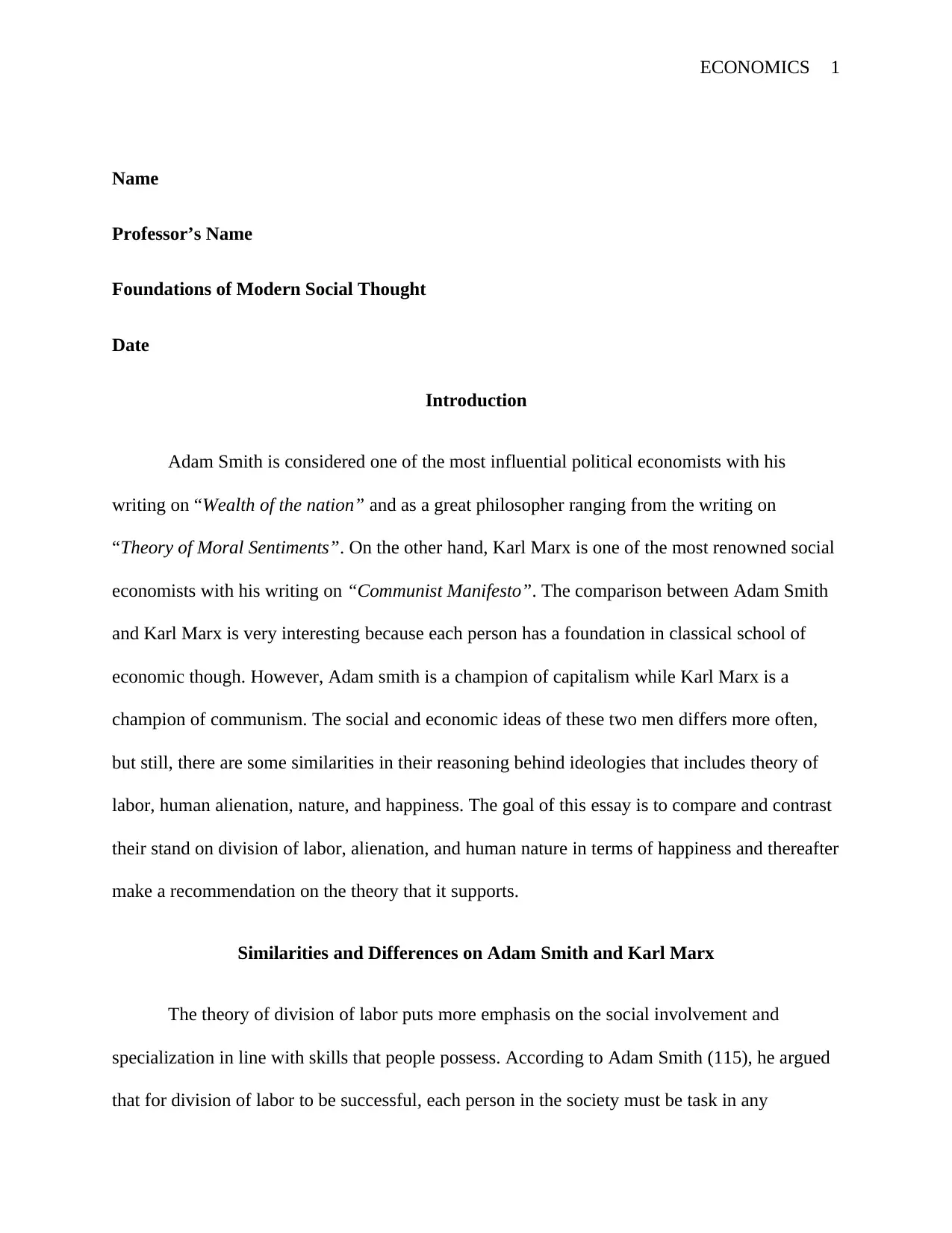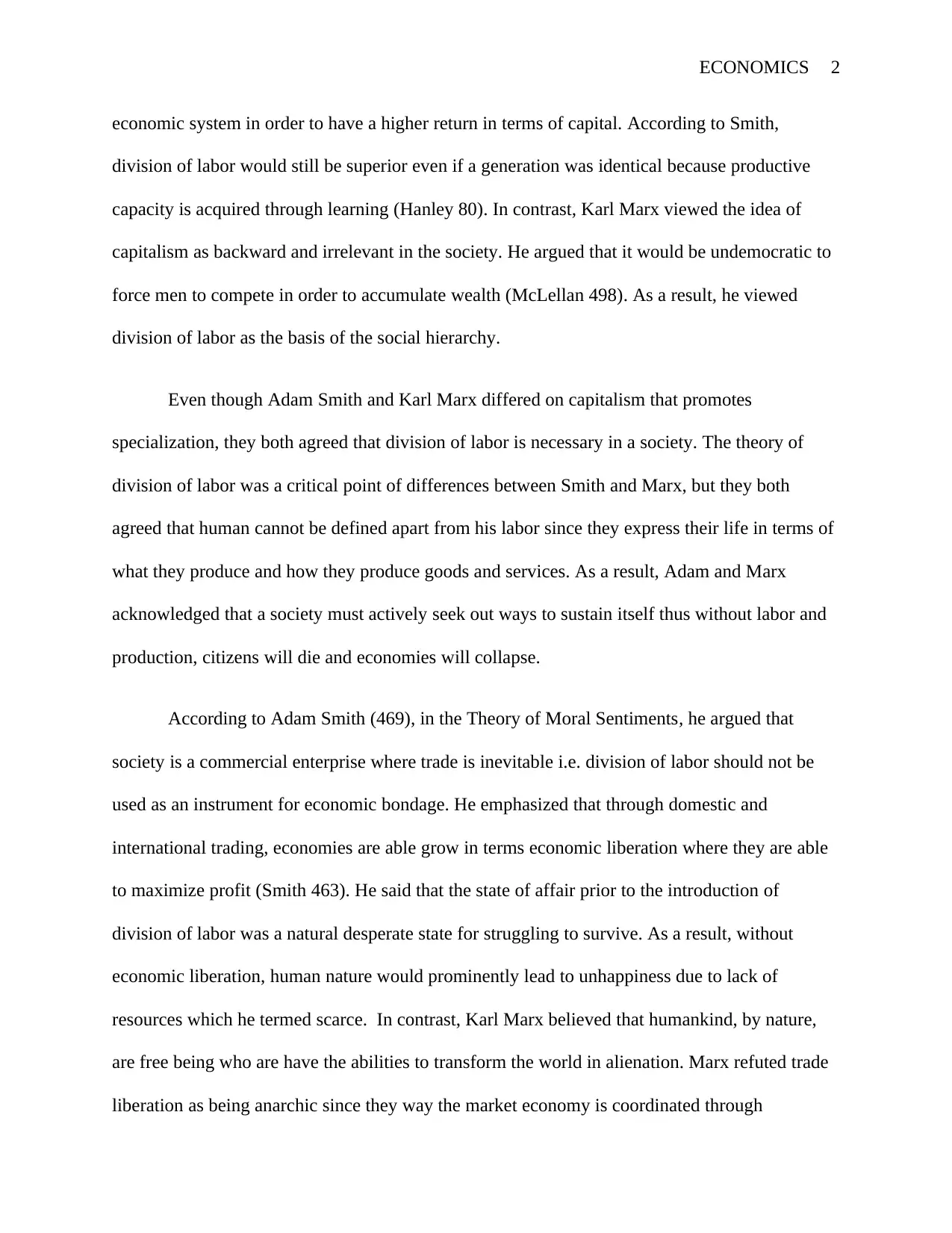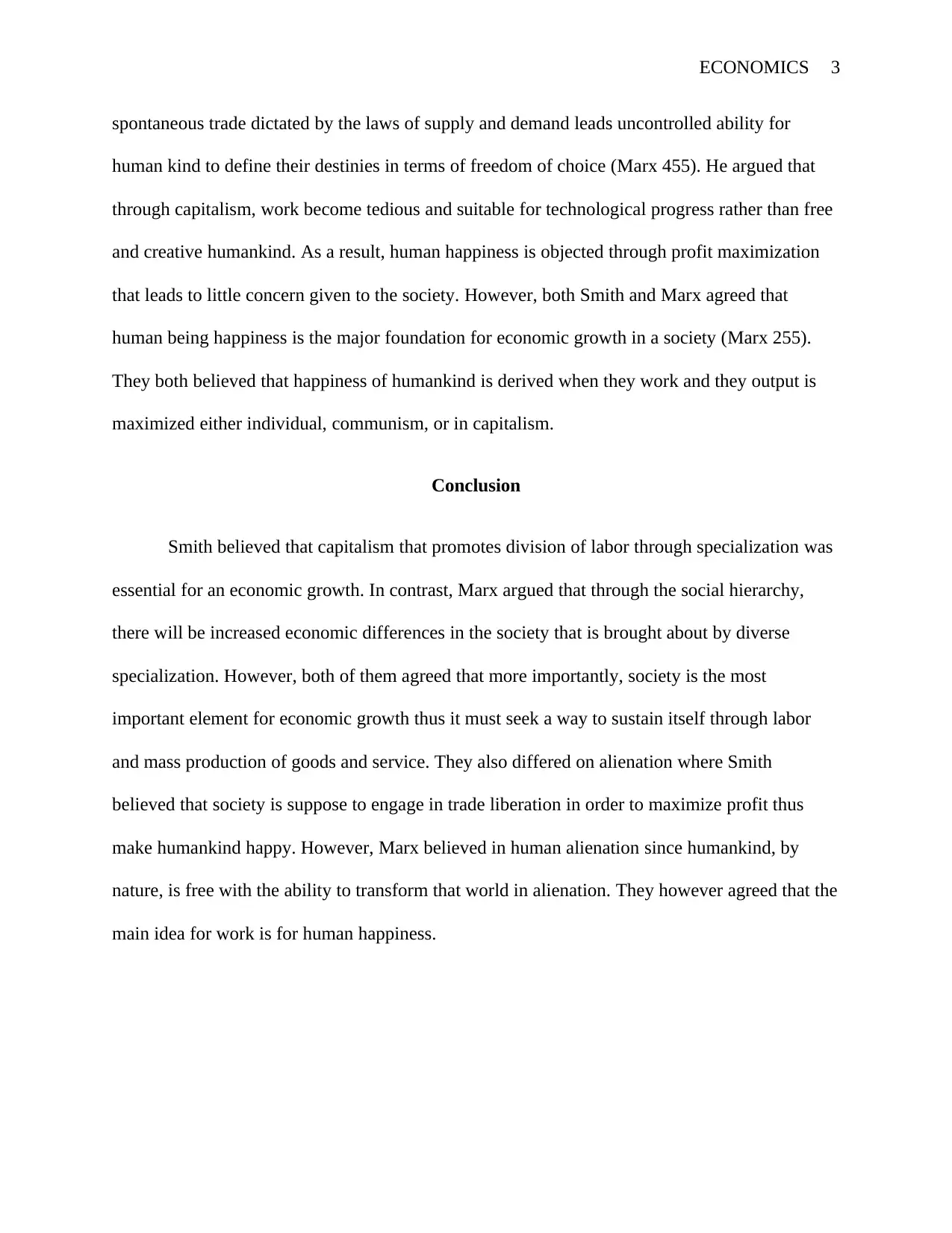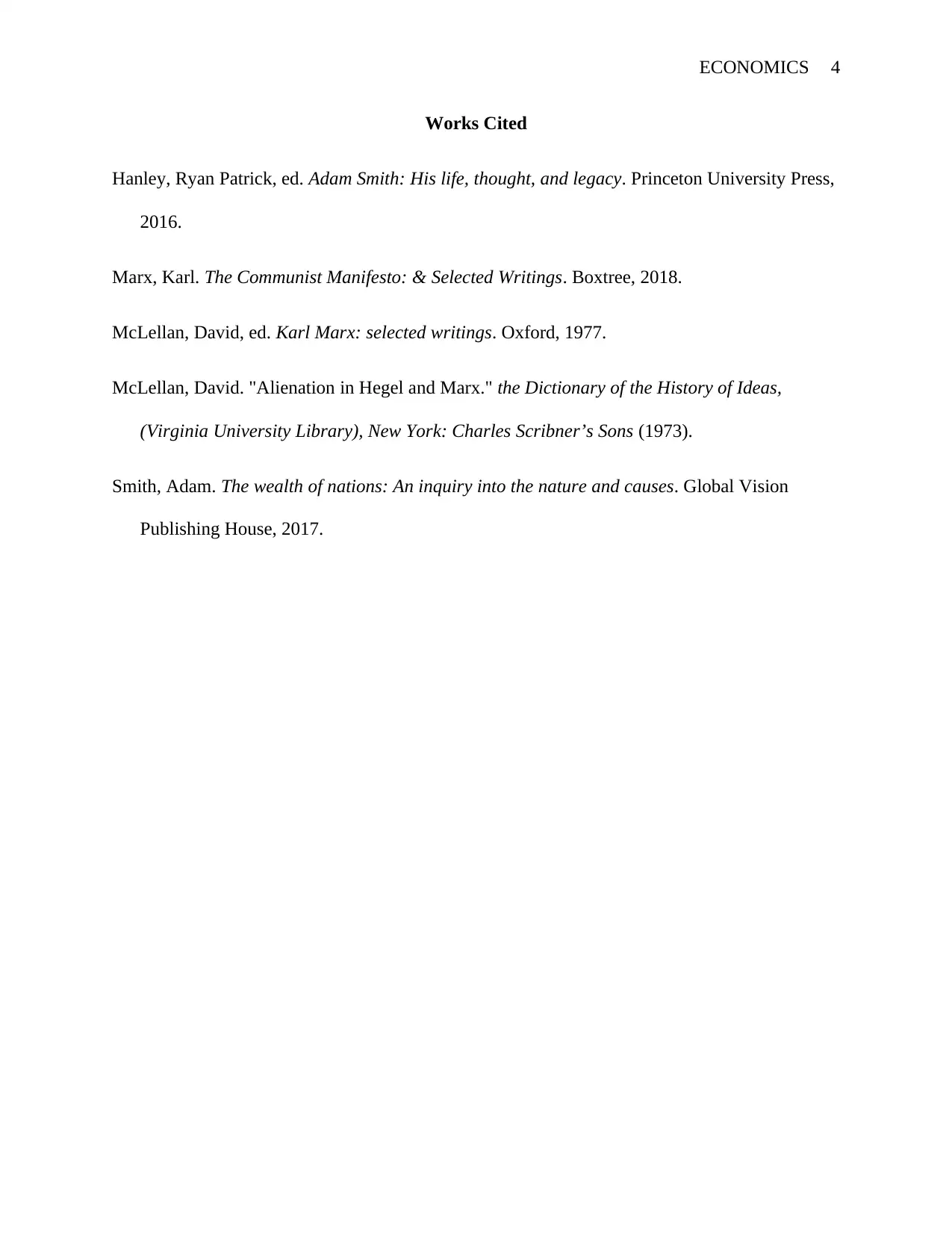Foundations of Modern Social Thought: Smith and Marx Comparison Essay
VerifiedAdded on 2022/07/28
|4
|1029
|34
Essay
AI Summary
This essay provides a comprehensive comparison and contrast of the economic philosophies of Adam Smith and Karl Marx, two foundational thinkers in the field. It begins by introducing their key works, 'Wealth of Nations' and 'Communist Manifesto,' and highlighting their differing stances on capitalism and communism, respectively. The essay then delves into a detailed analysis of their views on the division of labor, exploring how Smith saw it as essential for economic growth through specialization, while Marx viewed it as a source of social hierarchy. Furthermore, it examines their contrasting perspectives on human alienation, with Smith advocating for trade liberation to maximize profit and human happiness, and Marx emphasizing human alienation under capitalism. The essay concludes by synthesizing their agreement that human happiness is the ultimate goal of work and economic activity. This essay offers valuable insights into the core tenets of these influential economic theories and their relevance in understanding modern economic systems.
1 out of 4










![[object Object]](/_next/static/media/star-bottom.7253800d.svg)